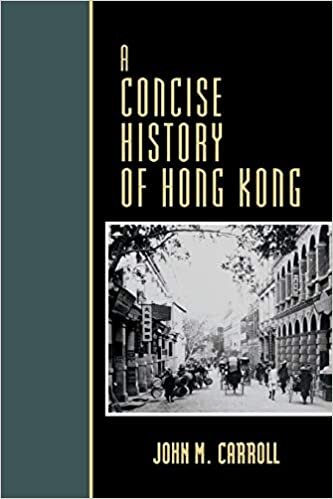A Concise History of Hong Kong (Critical Issues in World and International History)
Photo credit: Amazon
“A fine balance between substance and readability”.
—Sino-Western Cultural Relations Journal
“Carroll offers a cogent synthetic history from the 1840s Opium War to the present, with references geared to English-language readers. . . . Clearly written [and] accessible, especially for students working with English-language sources. . . . Recommended.”
—CHOICE
“This is an extraordinary study and could be used by any level of scholar and in any number of classrooms. . . . It could easily be used in upper-level or graduate classes on the British Empire, comparative colonialism, urban studies (whether Asian or world) and Chinese history.”
—World History Connected
“John Carroll has done an excellent job of producing an engaging and up-to-date overview of the territory from the beginning of colonial rule through to the present. It will be of particular value to those who teach on Hong Kong, as they now have a book that students will find accessible and interesting, but it will also serve as a good entry point for those who want to learn more about the development of this distinctive region.”
—New Zealand Journal of Asian Studies
Author: John M. Carroll
Year: 2007
Buy it here: Amazon, Book Depository
Summary:
When the British occupied the tiny island of Hong Kong during the First Opium War, the Chinese empire was well into its decline, while Great Britain was already in the second decade of its legendary "Imperial Century." From this collision of empires arose a city that continues to intrigue observers. Melding Chinese and Western influences, Hong Kong has long defied easy categorization. John M. Carroll's engrossing and accessible narrative explores the remarkable history of Hong Kong from the early 1800s through the post-1997 handover, when this former colony became a Special Administrative Region of the People's Republic of China. The book explores Hong Kong as a place with a unique identity, yet also a crossroads where Chinese history, British colonial history, and world history intersect. Carroll concludes by exploring the legacies of colonial rule, the consequences of Hong Kong's reintegration with China, and significant developments and challenges since 1997.
Book description credit: Amazon

